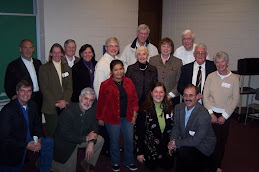TWO PRIESTS, TWO POPES, HALF A
CENTURY APART
By
EUGENE CULLEN KENNEDY
 Anyone who was in the crowd that
packed
Anyone who was in the crowd that
packed
Kung received at least half of the
back of the ecclesiastical hand that has slapped Father Schuller for his
prophet’s call to re-invigorate the Church by returning to the work of the
Council in which Kung had played such an important role. Kung received an interdict from the Catholic
University of America but an honorary degree from St. Louis University University
of Tubingen
Father Schuller has been denied
permission to speak in Catholic
Churches
You won’t find irony as rich as that
associated with the punishment he received from the Austrian hierarchy. They told him that he was no longer a monsignor, a title out of medieval court
life, the loss of which turns out to be a tribute to Schuller who is committed
to bringing the Church as a Servant to humanity in the 21st century. Schuller is traveling on the energy generated
by Kung and the reformers of Vatican II, urging people and bishops to commit
themselves to the evangelization urged by that Council rather than the
evangelization, a return to the middle ages and monsignors, urged as a new
“interpretation” of Vatican II by those partners in retro-theology and Church
discipline, Popes John Paul II and Benedict XVI.
If Schuller and Kung, following the
same knight’s calling to retrieve the Holy Grail, might, in a sense, have been
separated at birth, so, too, the Popes, John XXIII and Francis, separated by
the same half century, nonetheless possess the same master pastoral gene. John XXIII expressed it in his bringing his
country roots with him into the Vatican Vatican and occasionally into Rome
Pope Francis seems to many nervous
Catholics too good to be true and they worry that this man who, in his
large-hearted simplicity and common sense, may somehow turn out to be different
than he has seemed, less like John in the long run and more like Benedict. Any pope who can say that having the previous
pope around is like having grandpa nearby does not seem likely to lose the
humanity that makes him so attractive.
When John XXIII was pope and had
broken down barriers by the kind of embrace that he gave the delegation of Jewish
officials, saying, “I am Joseph and you are my brothers,” prompted philosopher
Hannah Arendt, who had noted his work to save Jews during the war, to write,
:We have a Christian sitting on the throne of Peter.”
She would write the same thing if she
heard of Pope Francis’s pastoral response when, on his plane returning from
World Youth Day in Rio, he was asked about homosexuals and he answered,
obviously from his heart, of their human goodness, of our need to support
rather than censure them, and, who was he to judge them is they were seeking
God in their own way?
The wonderful thing about these
words about homosexuals is that nobody – no speechwriter, advisor, or P.R.
expert, much less a curial official or a screenwriter – could have imagined the
saving simplicity of Francis’s profoundly Christian words. He speaks as John XXIII did when aked why he
called Vatican II into session. He did
not respond by saying that the Church had to tighten up but that it had to open
up, and his purpose was not to save monsignors or other trappings of the past,
but that he did it for the people, “so that the human sojourn on earth might be
less sad.” That, of course, is why
Francis urges bishops and priests to get out of the institution and into the
midst of their people. The Church is
indeed to make the journey of all people less sad.
So blessed are we that we have in
Father Schuller a priest who calls us back to Vatican II much as Hans Kung had
called us to it half a century ago.
Francis stands as unself-consciously as a pastoral pope as John XXIII
did in that same era. Father Schuller is
not just calling for healthy reforms, he is bringing back, as is Pope Francis,
the excitement that filled the Church at the time of Vatican II. While Benedict XVI worked hard to bring us
back to the 19th century of Vatican


